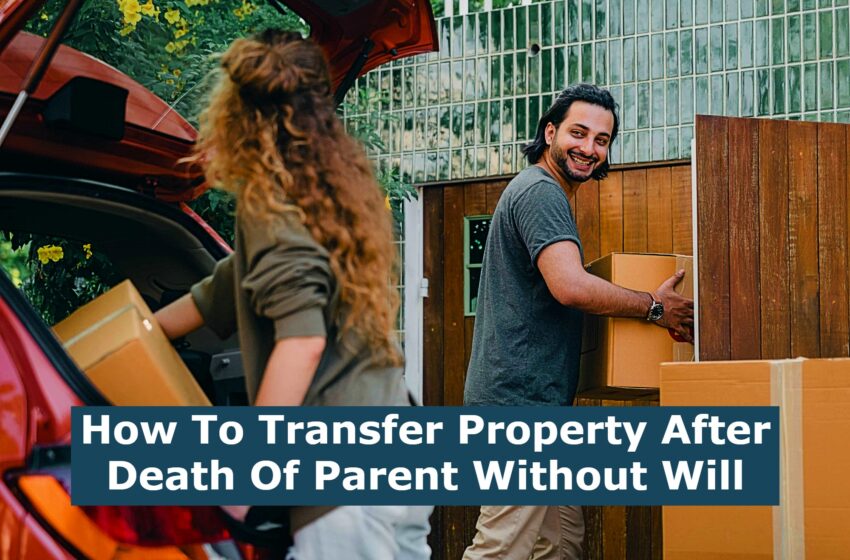
How To Transfer Property After Death Of Parent Without Will
When you have to deal with the death of your parent without a will, you’ll need to know how to transfer property after his or her death. You can do this in several different ways, and there are a few things you should consider first.
Find out if the deceased person co-owned the property
If you have ever been in the market for a home, chances are you have co-owned a piece of property. As such, you have a vested interest in ensuring the property you steward is the one you want it to be. So, it’s not surprising that you want to get the most out of the ensuing legal contract. Having a clear title is a must. One of the easiest ways to do this is to check your bluff with a reputable realtor. Not only will you find out if the property is worth the mortgage, but you’ll also be armed with a list of prospective tenants. Most importantly, you’ll know exactly what to do and not to do. Moreover, you’ll know when and how to do it.
Avoid naming someone who is listed as a beneficiary in the will as your parent’s personal representative
When it comes to naming a beneficiary in your Will, you might want to consider what you’re doing. A beneficiary is a person or organization that receives something after your death. This could be anything from a bank account, to a retirement plan, or even a life insurance policy. You don’t have to name the estate if you don’t want to, but it can have big tax implications.
Most financial services companies offer a form to designate beneficiaries. If you’re concerned that you might miss a vital piece of information, you can always contact a professional and ask them to do it for you.
One of the benefits of naming a beneficiary is that it can save you from a long probate process. Probate can take months or years, and the costs can be steep.
Transferring property without probate
If your parent has passed away without a will, there are legal provisions to help transfer property. However, it can be a difficult process. It can cause you and your family stress and delay the administration of your parent’s estate. The steps you need to take will depend on your state.
In California, for example, a person can transfer real estate to their spouse and children without having to go through probate. A deed of joint tenancy or warranty deed may be used to record this.
Another option is to create a living trust. This type of arrangement is designed to ensure that your property will pass to your heirs. You can also choose to receive savings bonds that can be received by your payable-on-death beneficiary.
Co-owners own real estate as tenants in common
There are several forms of co-ownership. One of them is tenancy in common. However, it is important to understand that tenancy in common is different from other forms of co-ownership.
This form of ownership has no right of survivorship. When one owner dies, the other owner’s interest passes to the person who was named in the will. If no will is left, the property will pass to the next of kin. The heirs will be chosen under the laws of the state where the property is located.
If a surviving owner does not want to live with another co-tenant, it may be possible to sell the share of the property. Some written agreements include a provision for a right of first refusal to buy the tenant’s share. These are known as “life estate deeds”.
Another way to avoid probate is to establish a trust. The legal documents for establishing the trust will be based on the laws of the state in which the property is located. It is best to consult a real estate attorney to help you draft these documents.
Divide the estate if you don’t have a will
You have just lost your parent, but you don’t know what they would have wanted you to do with their property. You don’t want to leave anything to someone you wouldn’t want to receive it. In the end, your loved ones will be the recipients of your assets.
The best way to find out what your parent would have wanted is to ask them. They may not have written a will, but they will still have a clue as to what you would have wanted them to do.
If they have no will, their property will be divided according to state law. This is known as intestacy. Depending on the state, heirs can be siblings, cousins, aunts, uncles, or even children.
The distribution of the estate can be supervised by a court. However, most people choose to leave their property to a meaningful charity or to their immediate family.


